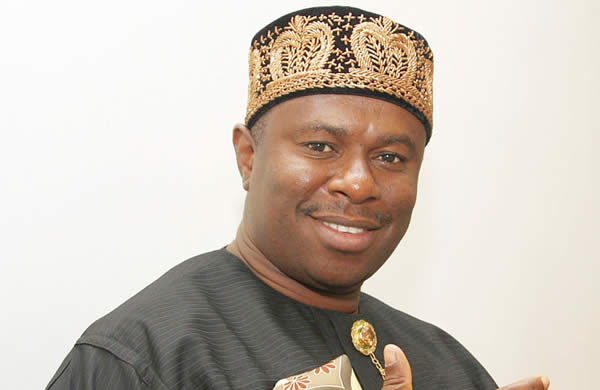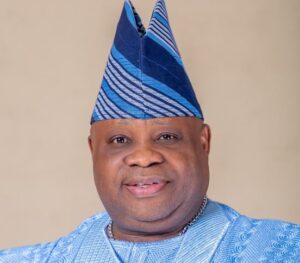
The Parliamentary system debate
By Dakuku Peterside
The debate over which system of government is most appropriate for a multi-ethnic and geographically diverse Nigeria has suddenly resurfaced. This time, it is pushing the fundamental issues of good governance, bread and butter, security, and inclusiveness that Nigeria is grappling with to the back burner. At the centre of the debate is the agitation for a return to the parliamentary system of government as the structural panacea to Nigeria’s myriads of problems, although Nigeria has long consigned this system of government to history. Agitating the minds of critical observers of Nigerian politics is whether this renewed debate is political or systemic or is just a symptom of frustration with poor governance outcomes. Will a change from a presidential system of government to a parliamentary system put Nigeria on a trajectory of growth and development? Is there solid evidence that our many woes come from the practice of the presidential system of government, that a change to parliamentary will help us overcome?
The first to fire the salvo was a group of 60 members of the National Assembly that proposed a bill to take the country back to the parliamentary system. Support came from diverse and far-flung quarters in rapid succession, including Afenifere, the pan-Yoruba political platform. We are not alone here. In late March this year, our neighbour, Togo, adopted a new constitution introduced by members of the ruling party, which transitions the West African nation from a presidential to a parliamentary system. Senegal also witnessed a significant generational shift in electing a new president. Developments in Togo and Senegal would increase the intensity of debate and agitations in Nigeria.
In retrospect, we have tried both the parliamentary and presidential systems at different times. Between 1960 and 1966, referred to as the first republic, Nigeria, like most African countries that just got independence from their British colonial masters, adopted a parliamentary system of government. It had its challenges and strengths. At the breakdown of the first republic, the popular verdict was that the system was not the most appropriate for us or that the Nigerian political elite could not operate it. The military government of 1976-1978 led by General Olusegun Obasanjo, and the growing political elites considered the pros and cons of the parliamentary system, which was still fresh in Nigeria’s minds, and decided that the cons outweighed the pros. Just before the 1979 military-civilian transition, they chose the presidential system for us. The justifications for this choice were to improve issues of management of geographical diversity, representation of various groups, repudiating strong ethnic sentiments against national sentiment, and eliminating corruption.
However, like the parliamentary system, the presidential system has merits and demerits.
The most significant challenges of the presidential system as practised in Nigeria are fourfold. The first is the tendency of the executive arm to pocket the legislative arm, which has made nonsense of the principle of separation of power, and checks and balances. The US-type presidential system is predicated upon a system of checks and balances. This vital principle does not allow for the rascality of any arm of government that may jeopardise the system. Since the return of democracy in 1999, and it is particularly evident at the sub-national level, this principle has been rendered impotent. Second, the enormous powers exercised by the president and governors tend to be abused and often breed dictatorship. Third, the winner-takes-all-mentality, which leads to the abuse of power of patronage that fuels corruption and exclusion of the majority from mainstream government activities, saps the government’s access to quality leadership potentials within the country. Fourth, the high cost of governance and low accountability have created a government system that is corrupt and overbearing. Our common patrimony is bastardised by a few privileged to be part of the government.
The attempt to revisit the parliamentary system is not unconnected to our current economic challenges, ethnic tensions or separatist agitations, and corruption that has defied solution and gross incompetence of a good number of our political leaders. As a participant-observer, I believe Nigeria’s current governance crisis is less a problem of the system of government and more of political culture, incompetence of operatives and political actors,lack of leadership capacity and moral depravity. Each system has its pros and cons. Any system can be designed,considering local peculiarities and made to work if run by competent persons who subscribe to a common vision and shared core values and are ready to respect the rule of law. Nigeria’s problems of disunity, lack of patriotism, stunted growth, corruption, and leadership incompetence are neither a product of the parliamentary nor presidential system. It is simply a lack of commitment by the elite to democracy, democratic tenets and the common good. Democracy is not just about representative election, which we practice, though with a massive caveat regarding its credibility. It is more about practising its principles , such as the rule of law, upholding fundamental freedoms of the people, accountability of government to the people, security of life and property, and responsible governance that gives dividends of democracy to the people.
Whether Nigeria should transition to a parliamentary system of government is a complex question that involves weighing various factors, including the country’s political culture, multi ethnic setting , historical context, governance challenges, and aspirations for democratic development. Proponents of a parliamentary system argue that it can promote political stability by ensuring a closer alignment between the executive and legislative branches of government. In a parliamentary system, the government is typically formed by the majority party or coalition in the legislature, leading to smoother governance than the potential for gridlock in a presidential system. Also, they argue that parliamentary systems often feature a more transparent chain of accountability, as the executive is directly accountable to the legislature. This can enhance transparency and responsiveness to the electorate’s needs. They further argue that parliamentary systems are more flexible in responding to crises or changing circumstances. If the government loses the legislature’s confidence, it can be replaced swiftly through a vote of no confidence or early elections, allowing quicker course corrections. Lastly, a parliamentary system could better accommodate the representation of various groups by fostering coalition-building and power-sharing among different factions.
Achieving this transition to a parliamentary system requires significant constitutional reforms, which can be lengthy and contentious. It would also necessitate changes to the electoral system and the functioning of government institutions. Nigeria has a long history of presidential governance since gaining independence in 1960. Transitioning to a parliamentary system would represent a departure from this tradition and may encounter resistance from those vested in the current system. Implementing a parliamentary system would require building institutional capacity, training legislators and administrators, and fostering a political culture conducive to coalition-building and consensus-driven decision-making.
A marked difference between the two systems is the cost of governance versus development, which weighs heavily in favour of the parliamentary system. This may be an attraction for proponents of a parliamentary system. However, it would help if you juxtaposed this with which system is more appropriate for governing a diverse multi-ethnic federation and what system has worked best for the most successful federations in the world. Opponents of a transition to a Westminster-style parliamentary system have also argued that switching could aggravate the challenges of governability because of our political parties’ high level of indiscipline, poor political culture, ethnic cleavages, and the multi-ethnic nature of our society.
Ultimately, the decision to transition to a parliamentary system should be guided by careful consideration of the preceding factors and a broad-based consultation and consensus-building among stakeholders. It is essential to assess whether such a change would address Nigeria’s governance’s underlying challenges and contribute to its long-term political stability and development. The inference to draw is that the current agitation is a demand for a new political culture, protest against the high cost of governance, incompetence of the political leadership, bloated bureaucracy, and poor governance outcomes. There is no definite study to show a relationship between a system of government, thriving democracy, and a high standard of living. Nigeria’s problem is not necessarily the system of government we practice but the leadership deficit among the political operatives and actors. No matter which system is in place, we will have the same results as we are seeing now if the same morally jaundiced and intellectually bankrupt political actors hijack power and rule in their narrow, selfish interests. That is our bane. That is what we must change to survive.




